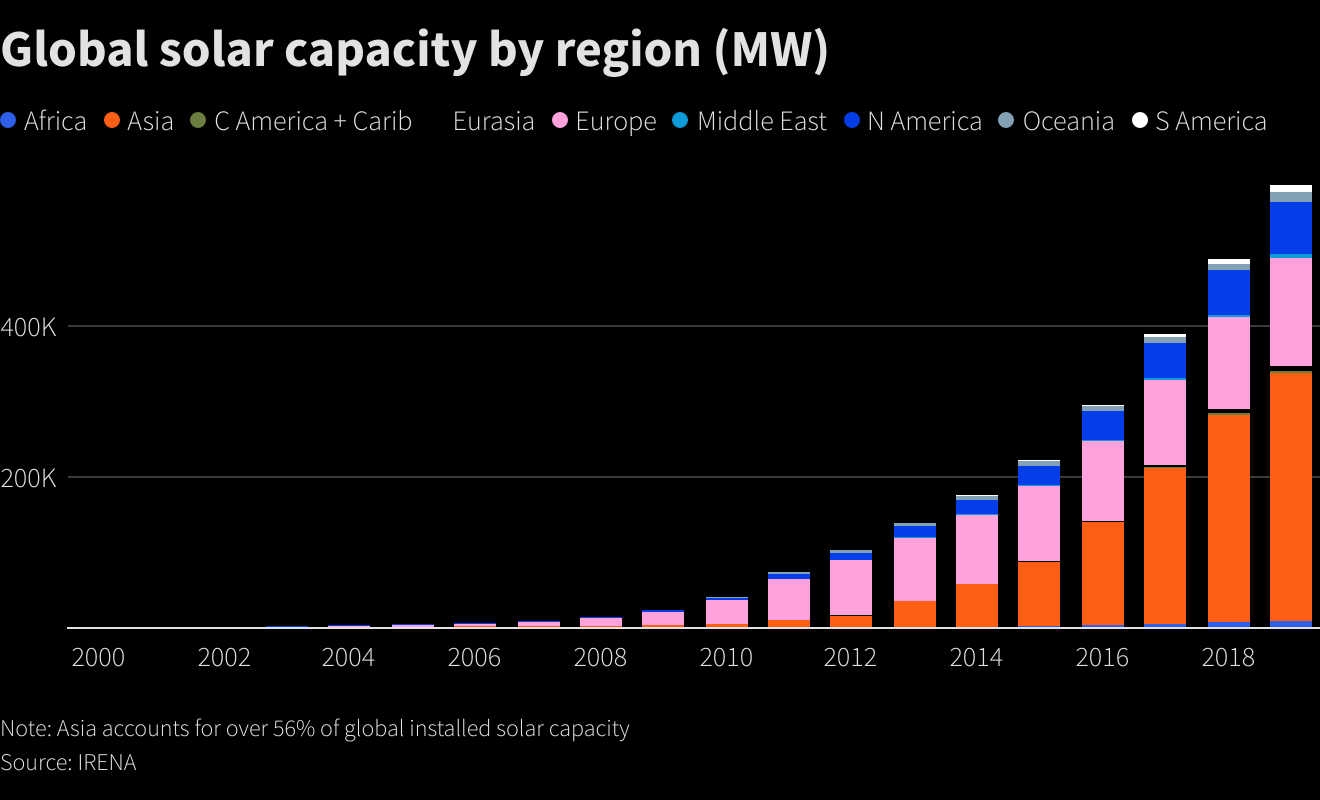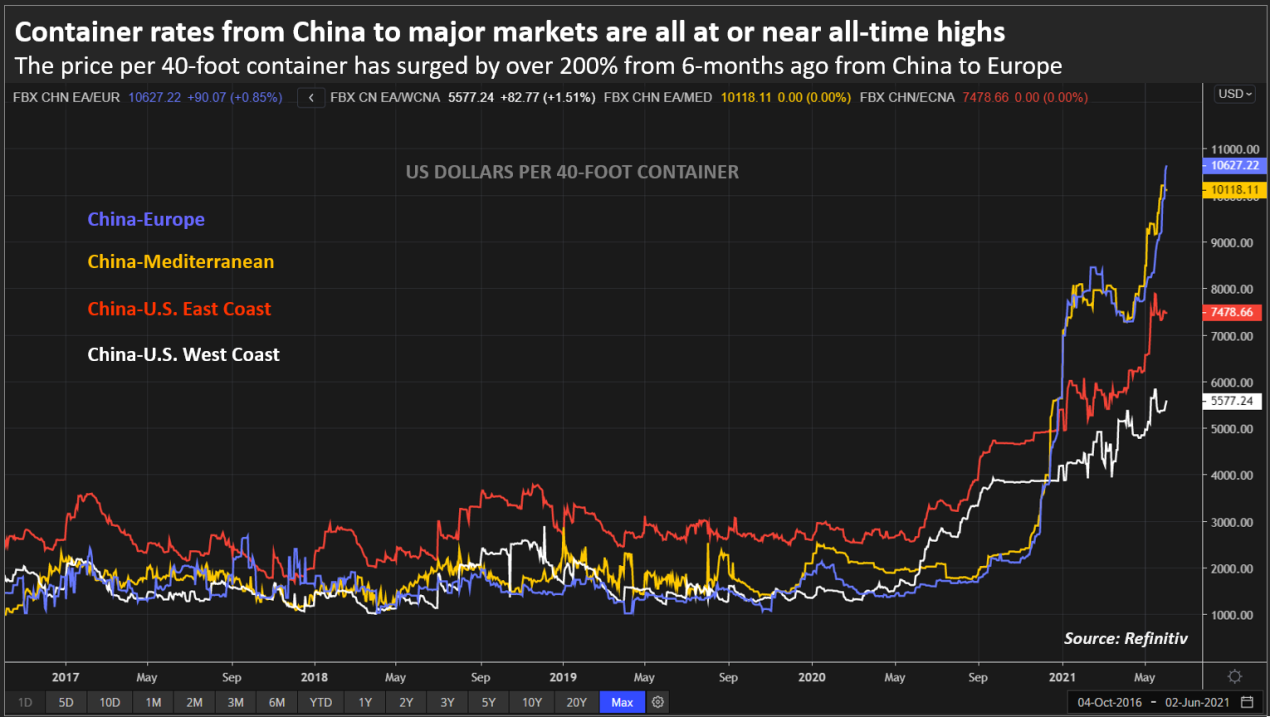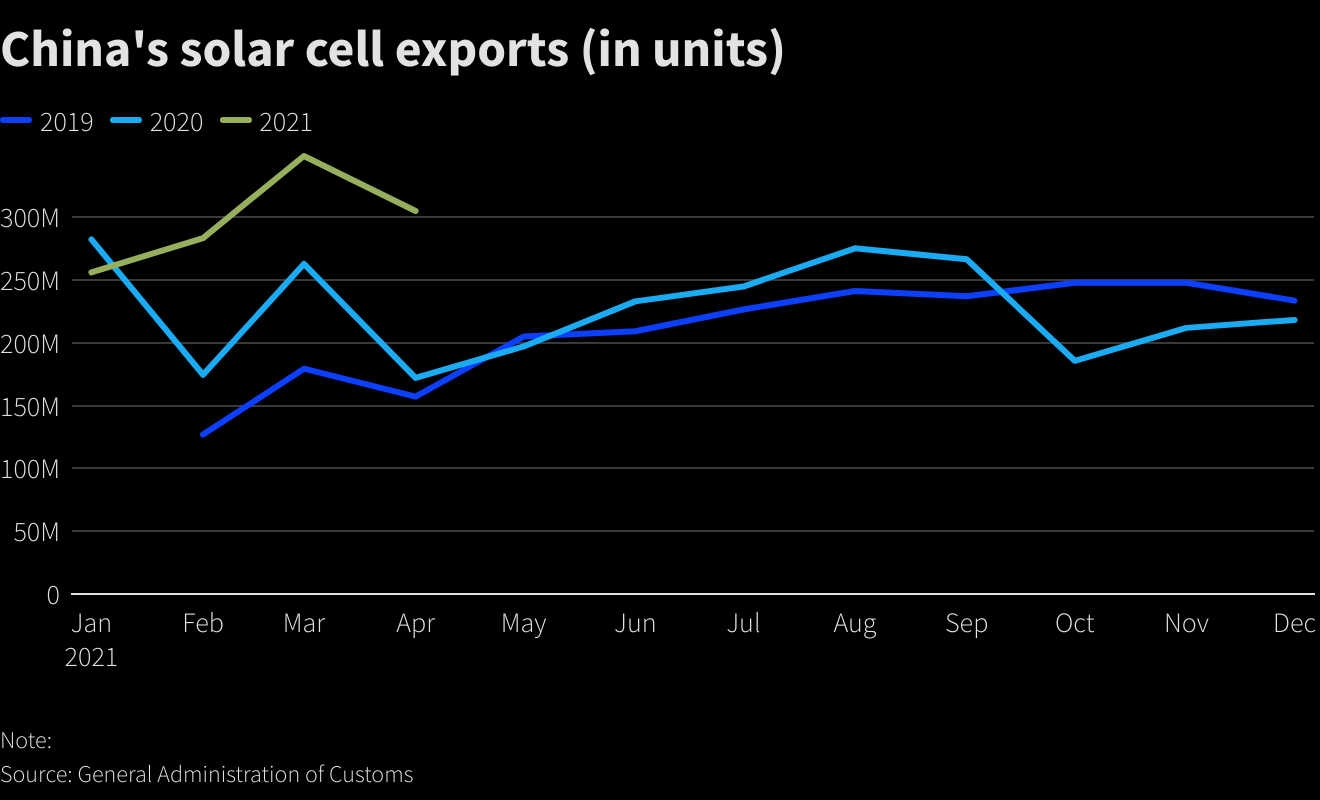Global solar power developers are slowing down project installations because of a surge in costs for components, labor, and freight as the world economy bounces back from the coronavirus pandemic.
Slower growth for the zero-emissions solar energy industry at a time world governments are trying to ramp up their efforts to fight climate change, and marks a reversal for the sector after a decade of falling costs.
It also reflects yet another industry shaken up by the supply chain bottlenecks that have developed in the recovery from the coronavirus health crisis, which has businesses from electronics manufacturers to home improvement retailers experiencing huge delays in shipping along with soaring costs.
Among the biggest headwinds for solar is a tripling in prices for steel, a key component in racks that hold solar panels, and polysilicon, the raw material used in panels.
Soaring shipping freight rates along with higher costs for fuel, copper and labor are also pinching project costs.
Global solar installation forecast for the year could slide to 156 GW from a current projection of 181 GW if price pressures do not ease.
In Europe, some projects that do not have strict timelines for when they need to begin delivering power are being delayed. The situation has not resolved itself because prices have stayed high, so those who have capacity to wait are still waiting.
Supply constraints could put upward pressure on relatively stable European solar prices later this year as companies seek to preserve profit margins that are already razor thin.
In China, the world’s top solar product maker, producers are already raising prices to protect margins, leading to slower orders.
Prices for panels are up 20-40% in the past year, following the surge in costs for polysilicon, the raw material for solar cells and panels.
We have to manufacture the product, but on the other hand, if the price is too high, the project developers want to wait. In a degree, output has dropped because customers are reluctant to fulfill orders at current prices.
Post time: Aug-02-2021



